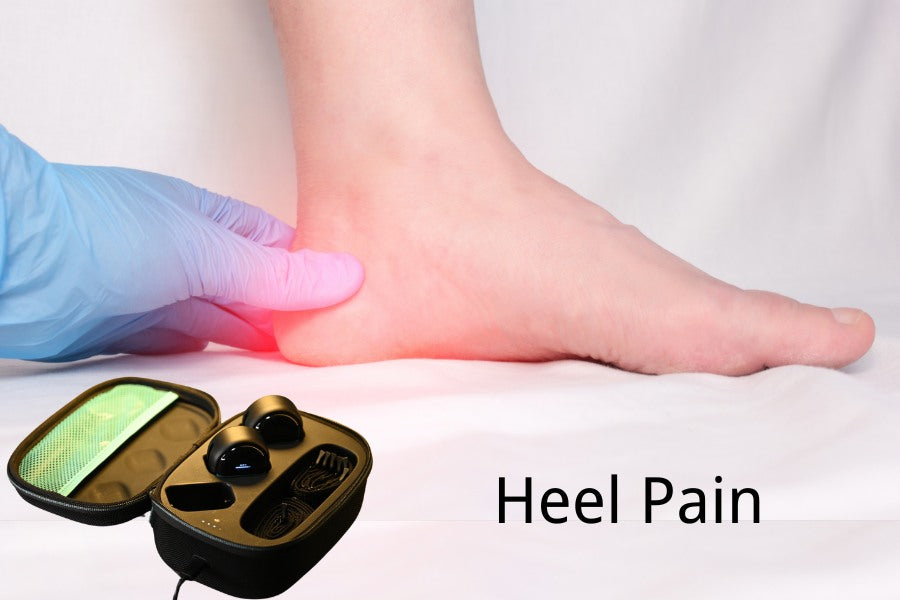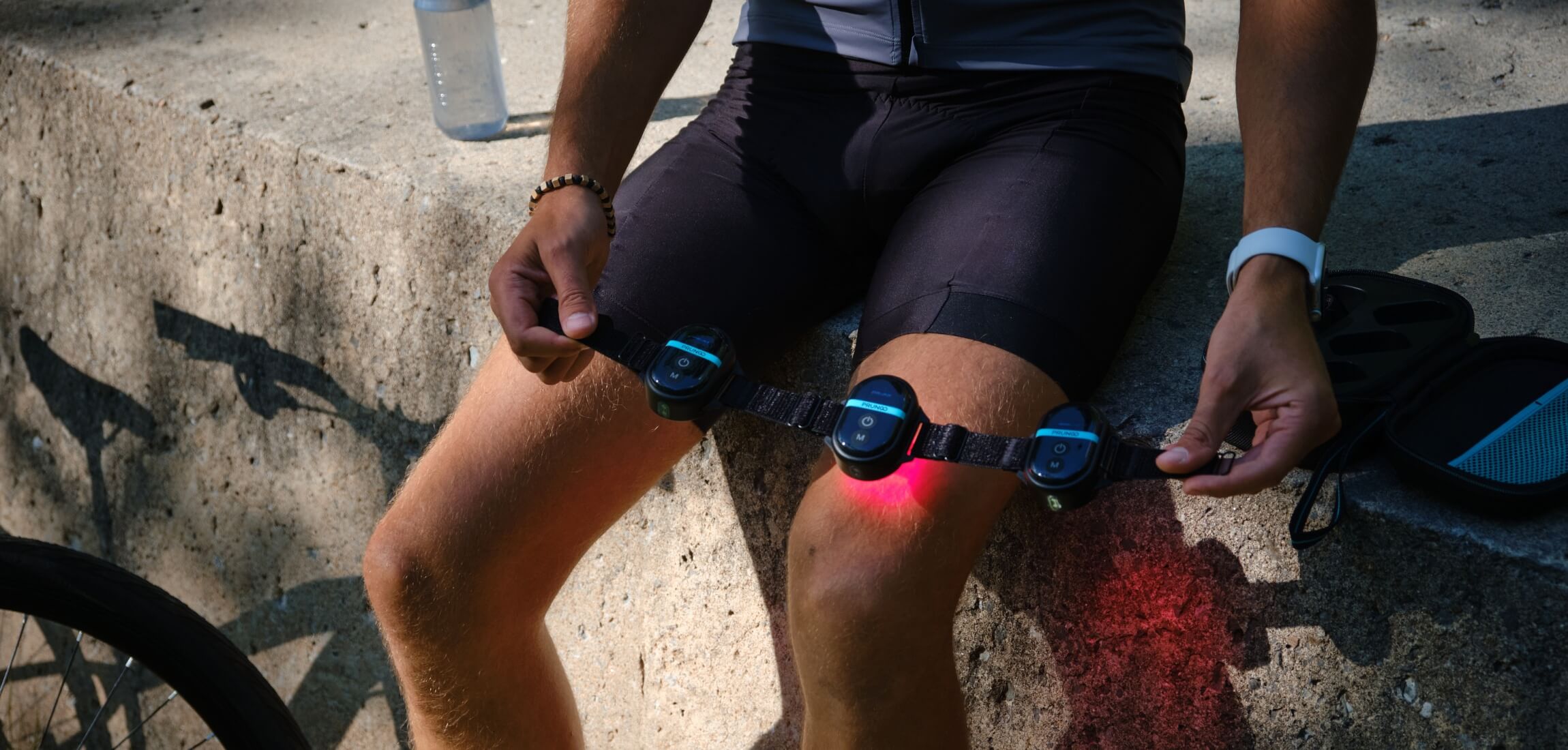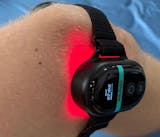Heel pain is one of the most common types of pain. The reason why it is so common is that the heel bears a lot of the weight of a person’s body. If your bones are not strong enough to support your body or you have a disease where your bones are affected, heel pain is one of the symptoms to show.
So, can heel pain be a sign of cancer?
In some cases, serious conditions like plantar fasciitis show heel pain as an indicator. In most cases, heel pain is an indicator of conditions like Tarsal Tunnel Syndrome (TTS), Gout, or Rheumatoid Arthritis (RA). In very rare cases, heel pain might be a symptom of undiagnosed cancer.
Heel pain caused by common conditions can be effectively managed through red light therapy at home. But don’t be fooled by the size of this device. It is immensely powerful and can give heel pain relief within 3 minutes.
However, if the heel pain doesn’t alleviate, it might be caused by a serious underlying problem. In this article, we will discuss the signs when heel pain can indicate an underlying cancer.
Can Heel Pain Be a Sign of Cancer?

Debilitating heel pain, in most cases, is a sign of plantar fasciitis. However, heel pain can also signal Vitamin D deficiency or obesity. But before we go into the chances of the co-occurrence of cancer and heel pain, we will discuss the types of heel pain and sources of heel pain:
1. Different Types of Heel Pain
Here are the different types of heel pain:
- Swelling and pain: Heel pain that is coupled with swelling can be a symptom of tiny cracks in your heel bone, especially if you have severe vitamin D deficiency or are overweight and spend a lot of time standing.
- Sudden, intense pain: If you have gout - a buildup of uric acid crystals in the heel area, you might experience sudden, debilitating pain in your heel. You might also experience swelling hand redness in the area which can last several weeks.
- Burning or numbness: In cases of Baxter's Neuritis, the person might feel a sense of burning or numbness in their heel area. This condition is caused when the plantar nerve is irritated or compressed.
- Dull ache and stiffness: If you experience a dull ache or stiffness in your heel area, especially after periods of rest, you can rule out cancer and get yourself checked for Rheumatoid Arthritis.
2. Common Causes of Heel Pain
As we've discussed before, there are many types of heel pain. Here is a list of the conditions that have heel pain as one of the primary symptoms:
- Plantar fasciitis: Plantar fascia is a band of tissue that connects the heel bone to the toes. Inflammation in this band of tissue due to constant pressure or injury might cause Plantar fasciitis. It is one of the leading causes of heel pain.
- Heel spurs: Heel spurs are growth in the heel bones, mostly due to age, causing heel pain. It affects about 15% of people, so it is a fairly common cause of heel pain.
- Rheumatoid Arthritis (RA): RA is a chronic autoimmune disorder that can cause inflammation in any joints in the body. If it attacks your Plantar fascia or the tendons and ligaments in the heel, it may cause heel pain in the form of a dull ache and stiffness.
- Stress fractures: If you’re obese, have a job of standing around all day, or suffer from osteoporosis, your heel pain might be stemming from a stress fracture.
- Tarsal Tunnel Syndrome (TTS): This condition is caused by a compression or irritation of the nerves in the tarsal tunnel, a narrow passage in your ankle.
- Gout: Gout is a form of arthritis in which uric acid crystals start building up in the joints. This can attack any joint in your body, even your heel.
All these types of heel pain can affect the quality of your life. While you can make speculations about your condition through this guide, your physician is the best source for answering your queries about the type of heel pain you experience and its relation to any underlying disease or condition that you may have.
Heel pain that occurs due to inflammation or irritation of the nerves can be managed with PRUNGO’s red light therapy module. The polarized red light therapy module’ self-developed 10-degree lens technology is so powerful that it can give you pain relief in your heels within 3 minutes. Continued use of this powerful device can help you manage your heel pain better over time and in many cases, even get rid of it completely.
So, when you start your day, a 3-minute red-light therapy module can make you spring into action rather than wait around for the stiffness to get better.

3. Cancer and Heel Pain
Heel pain can be one of the minor symptoms of cancer. However, if the heel pain is the only symptom you’re experiencing, it is likely not cancer. If your heel pain occurs with these other warning signs, then it could be an indicator of cancer:
- Sudden weight loss
- Unexplained weariness and fatigue
- Loss of appetite
- Changes in bowel and bladder
People with cancer that has begun to affect the skeletal system can experience heel pain. This is the reason why heel pain cannot be the only single symptom indicating the occurrence of cancer. However, cancer is a disease that impacts different bodies differently. Therefore, to be sure, it is always a wise decision to consult your physician who can rule out cancer for you based on other symptoms you are experiencing.
4. Diagnosing Cancer-Related Heel Pain
Differentiating between cancer-related and other causes of heel pain can be difficult at times. However, heel pain occurring with unexplained weight loss and extreme tiredness might require a diagnosis from a physician. They might use the following methods to assess whether your heel pain is cancer-related or not:
- Bone scan
- X-ray
- Biopsy
- MRI
What Is the Best Way to Treat Heel Pain?
Heel pain that is caused by common conditions like inflammation of the tendons and ligaments in the area can find relief with the following treatments:
1. Painkillers
For immediate relief, painkillers might be a good option. However, painkillers are not the solution to treat the cause that might be causing the heel pain. Physicians usually prescribe painkillers along with other treatment solutions to treat heel pain. However, continued use of painkillers has acidity as a side effect.
2. PRUNGO Red Light Therapy Module
PRUNGO medical-grade red light therapy devices are one of the most effective and side-effect-free ways to treat heel pain. This module is unlike any other treatment option because it focuses on both quick and long-term relief. The reason is that this device emits red light with a wavelength ranging between 650-850 nanometers.
The self-developed focusing lens improves the focusing ability of 650nm red light, reducing its natural divergence angle to less than 10 degrees. This concentrated energy delivery enables highly focused treatment of surface skin and shallow tissue.

Another factor that allows a deeper penetration is the use of polarizers which are commonly used in large medical equipment. Polarized lasers penetrate deeper in a spiral pattern, providing targeted and powerful energy delivery to the affected area. These features can treat heel pain deeper and faster.
With continued use, the production of mitochondria is increased. These are the powerhouses of the cells. Once the cells have a boosted power source, their function is improved and they can repair the damaged tissues, inflammation, and microtears that are causing the heel pain.
3. Use of Supplements
If the pain is being caused by a deficiency of Vitamin D or any other mineral, the use of supplements can help relieve the pain. However, the use of supplements with PRUNGO’s red light therapy module can help in quicker recovery.
Conclusion
If your heel pain is not an indicator of cancer, your physician can rule that out and carry out the diagnosis. Once the cause of your heel pain is diagnosed, they can progress further with the treatment. You can also try PRUNGO’s red light therapy module for improving your symptoms. If they improve with a few weeks’ use of the red light therapy, you can be sure that the heel pain is not an indicator of cancer. It might be inflammation which red light therapy can manage effectively.
PRUNGO’s red light therapy module is different because it polarizes red light making it high-energy density and high-penetration. It can have healing benefits for your heel pain and even tendons and ligaments that might be affected by inflammation or arthritis.
If you experience heel pain, go for PRUNGO’s red light therapy module and witness the results for yourself!
Related reading: How Much Does Red Light Therapy Cost?






Share:
What Is the Best Red Light Therapy for Back Pain?
How Soon After Surgery Can You Use Red Light Therapy?